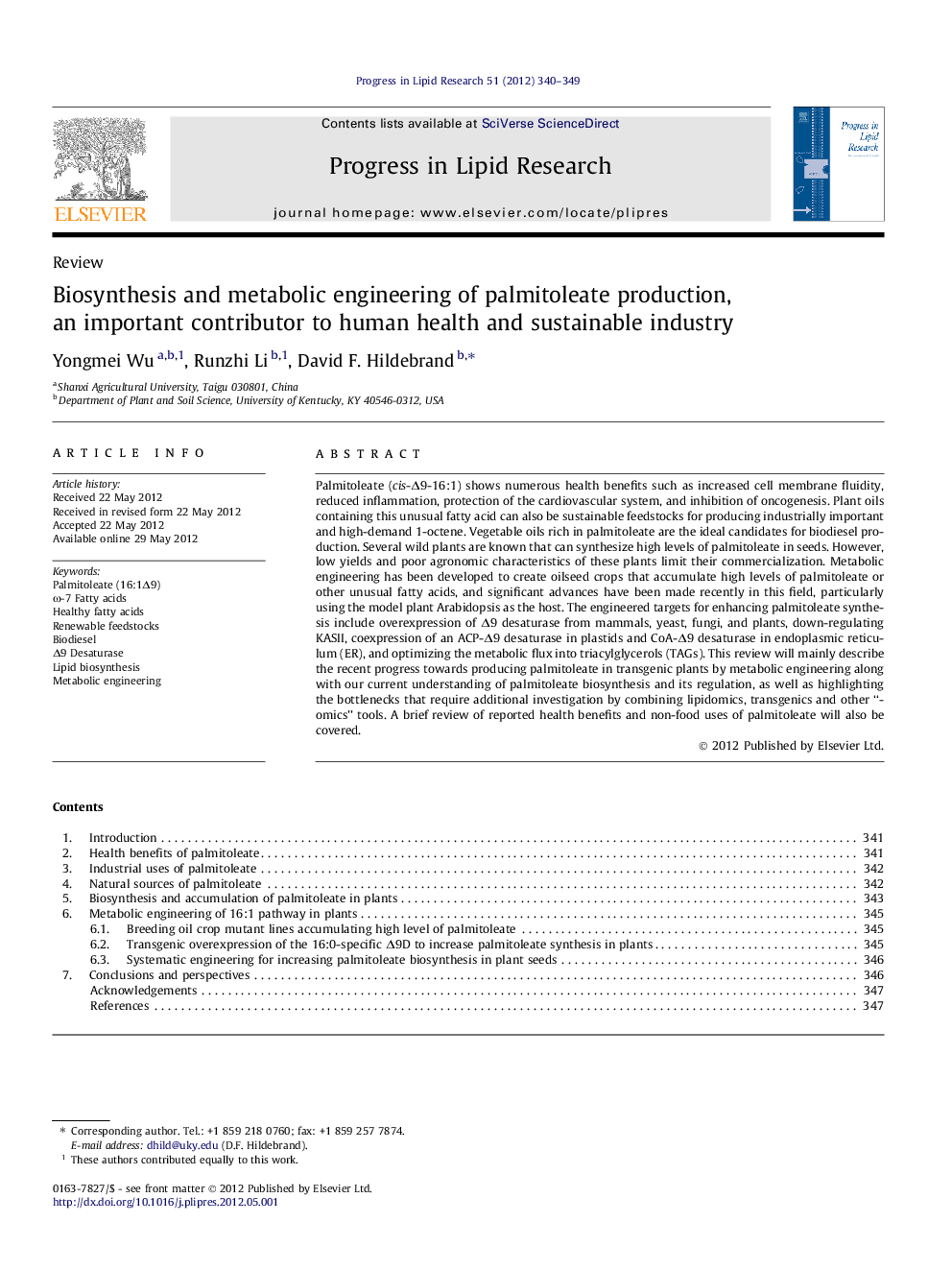| Article ID | Journal | Published Year | Pages | File Type |
|---|---|---|---|---|
| 2019149 | Progress in Lipid Research | 2012 | 10 Pages |
Palmitoleate (cis-Δ9-16:1) shows numerous health benefits such as increased cell membrane fluidity, reduced inflammation, protection of the cardiovascular system, and inhibition of oncogenesis. Plant oils containing this unusual fatty acid can also be sustainable feedstocks for producing industrially important and high-demand 1-octene. Vegetable oils rich in palmitoleate are the ideal candidates for biodiesel production. Several wild plants are known that can synthesize high levels of palmitoleate in seeds. However, low yields and poor agronomic characteristics of these plants limit their commercialization. Metabolic engineering has been developed to create oilseed crops that accumulate high levels of palmitoleate or other unusual fatty acids, and significant advances have been made recently in this field, particularly using the model plant Arabidopsis as the host. The engineered targets for enhancing palmitoleate synthesis include overexpression of Δ9 desaturase from mammals, yeast, fungi, and plants, down-regulating KASII, coexpression of an ACP-Δ9 desaturase in plastids and CoA-Δ9 desaturase in endoplasmic reticulum (ER), and optimizing the metabolic flux into triacylglycerols (TAGs). This review will mainly describe the recent progress towards producing palmitoleate in transgenic plants by metabolic engineering along with our current understanding of palmitoleate biosynthesis and its regulation, as well as highlighting the bottlenecks that require additional investigation by combining lipidomics, transgenics and other “-omics” tools. A brief review of reported health benefits and non-food uses of palmitoleate will also be covered.
